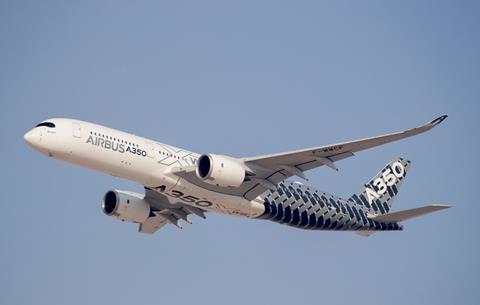
Airbus has estimated that the damage from its bribery conviction is likely to be in the region of USD 220 Billion.The record setting USD 4 Billion fine is only the start (see story below).
In Malaysia on the other had there is still the sense that Airbus admission needs to be "investigated" and "proven". MIDF Research has gone as far as to speak of a "golden opportunity for both co-founders to strengthen their trustworthiness back in the company and subsequently, the airline industry".
Malaysian authorities, investment houses and various persons in the ruling elite seem unable to comprehend that regardless of what they conclude about AirAsia and AirAsiaX, Airbus will be severely constrained in how it deals with AA and AAX. Dealing with current management and directors as if nothing happened would be contrary to the admission of guilt, and the penalty.
These matters cannot but concern AA and AAX management and boards for both airlines have Airbus fleets.Short of swapping their planes for Boeings or China made C919s, the only logical step is for AA's and AAX's management and board to be purged and replaced with fresh faces who can be proven to be independent of the current structures.
External administrators need to be appointed and the companies restructured.
END
Airbus put potential damage from bribery conviction at €200bn
Airbus analysis estimated that the damage impact from a criminal conviction arising from bribery charges levelled against the company could have reached €200 billion across its commercial aircraft, defence and helicopter divisions.
The airframer has agreed to pay a €3.6 billion ($4 billion) fine to settle the case under a three-year deferred prosecution arrangement, a deal intended to avoid a costly fraud trial and potential collateral damage affecting the workforce.
Airbus stood accused of failing to prevent bribery in a number of countries following an extensive investigation. The probe covered over 1,750 entities which were engaged by Airbus as business partners, third parties used to increase the airframer’s international reach and assist in winning sales contracts. Of these, 110 were the subject of particular concerns.
Conviction could have resulted in discretionary – and, in some states, mandatory – debarment from tendering for public-sector contracts.
“What matters here is not the potential loss of contracts…but the effect this will have on the company financially and on its [innocent] employees, and the wider effects this will have on innocent third parties,” remarked the president of the UK High Court’s Queen’s Bench Division, Dame Victoria Sharp, regarding the case.
Airbus had examined the value of contracts for which it could be banned from tendering if debarred, the effects of which could last up to 15 years.
This analysis showed that, in the worst case, the total future revenue at risk could exceed €200 billion.
Such an extensive financial impact would have put thousands of jobs at risk – at the airframer and its suppliers – across the 15-year timeframe, and would have affected Airbus substantially in terms of market presence given its position as one of the two players in a global commercial aircraft duopoly.
Financial firm Deloitte estimates, in a study commissioned by Airbus, that the indirect impact on the economies of countries including France, Germany, the UK, Spain and the USA could adversely affect their GDP by over €100 billion, said Sharp.
The reduction in competition from Airbus’s absence in public tenders, she added, could also result in additional public spending amounting to “many billions” of euros.

“Notwithstanding the seriousness of the conduct in this case, I consider the public interest factors against prosecution clearly outweigh those tending in favour of prosecution,” Sharp said.
She referred to Airbus’s “exemplary” co-operation in the matter, noting its voluntary submission to the UK Serious Fraud Office regarding overseas conduct and highlighting 24 individual areas in which it subsequently provided full assistance to the subsequent investigation – a factor which helped to halve the penalty portion of the UK fine to €398 million, resulting in a total sanction of €991 million.
This co-operation included providing access to over 30 million documents relevant to the probe. Independent investigation did not identify any additional documents not already brought up by Airbus’s own efforts.
“Airbus has, to use a colloquial phrase, truly turned out its pockets and is now a changed company to that which existed when the wrongdoing occurred,” added Sharp.
No comments:
Post a Comment